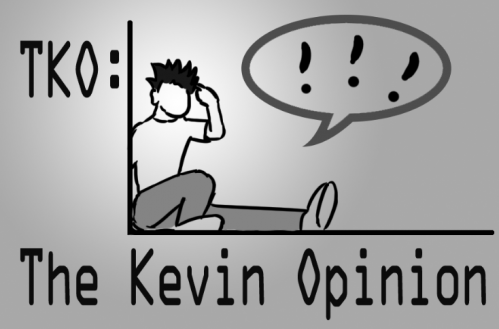TKO: The Kevin Opinion — LGBT Community in Athletics, Potential to Pave Path to Future
KEVIN KONG
Sports Editor
In the past few years, there has been an apparent change in attitude towards the lesbian, gay, bisexual and transgender (LGBT) community, in which being “different” has become more widely accepted.
According to a recent ESPN survey, 86 percent of randomly polled National Football League (NFL) players disagreed with the claim that “a player’s sexual orientation matters to you.” Though this may sound promising, only 49 percent of the 51 athletes surveyed believe that a gay player would be socially accepted in a locker room. This shows promise of great progress, but also great bias.
In an ideal world, sex and gender identification are separate from determining whether a player is skilled or accepted in a social setting. However, there is an inherent prejudice that haunts the world. For example, Rene Portland, Penn State University girls’ basketball coach, claimed in 1991 to forbid lesbian athletes from joining her team. Even over two decades later, the National Public Radio’s (NPR) website reported last year that certain NFL teams were asking prospects questions regarding sexuality. Of course, the NFL stepped in and investigated, but what can be taken away from this story and the example set by Portland is how attitudes toward LGBT athletes can be negative and how discrimination can remain prevalent. This negative attitude sets back society and its progress in accepting others.
There has also been a shift in the attitudes towards LGBT athletes on a nationwide standard. For instance, the response has been generally positive for openly gay athletes such as basketball player Jason Collins and football player Michael Sam. Attitudes like this that inspire real change and display how the prejudice LGBT athletes face is slowly decreasing. On the court, one can demonstrate a positive attitude towards LGBT teammates. For starters, a simple gesture or attempt to befriend someone else speaks volumes. Not only does it show character in the form of sportsmanship, it shows willingness to adopt new paradigms of tolerance.
Furthermore, a revolutionary California Interscholastic Federation (CIF) rule allows a student to participate on sporting teams based on which gender they identify with, not necessarily based on their biological sex. By focusing on students’ needs, CIF has made a positive step towards the future in freedom of expression. Rules and regulations must also play an integral part in ensuring that an athlete is not discriminated against.
In other words, one must think beyond their closed-minded fear of a LGBT athlete, or person for that matter.
